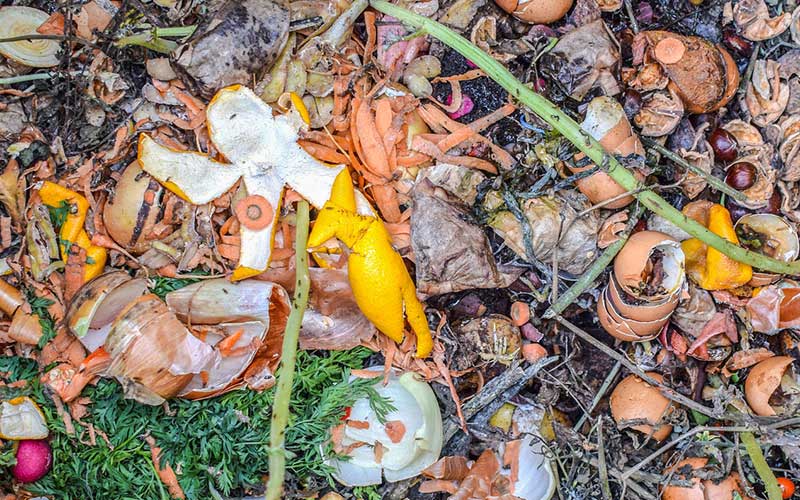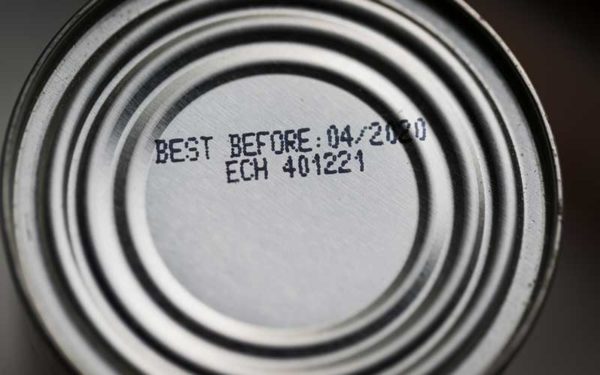
To better serve the people of Rhode Island, we must address the state's food insecurity and food waste problems. And we can do that with zero-waste solutions. Photo: Pixabay.
Rhode Island is running out of room for our trash. The Central Landfill, located in Johnston, serves 97% of the state’s residents and buries 3,800 tons of trash each day. At this rate, the landfill will reach capacity by 2034, leaving Rhode Island in desperate need of solutions to its waste problems.
Food waste makes up a staggering 19% of the trash sent to the Central Landfill – about 722 tons per day. Some of this food waste is still edible and could be donated to food pantries (just think about all the food that supermarkets throw away because no one bought it). The rest could, and should, be diverted from the landfill by way of composting and food donations – practical solutions that Rhode Island can implement right now.
These actions would keep food waste out of Rhode Island’s sole landfill – cutting the state’s climate-damaging emissions while urgently addressing food insecurity within the state.
What Happens When Rhode Island’s Landfill Reaches Capacity?
Landfills accepting municipal solid waste – our curbside trash – are the third-largest source of harmful methane emissions in the United States. Food and yard waste drive these climate-damaging emissions because they break down differently in the oxygen-free or anaerobic, environment of a landfill than they do in the oxygen-rich environment of a compost pile. In the anaerobic landfill environment, methane-producing bacteria decompose organic waste and generate those hazardous emissions.
What’s more, landfills burden communities with noise, increased traffic, odors, and toxic pollution that poisons our groundwater, rivers, lakes, and bays.
Burying 3,800 tons of trash per day is unsustainable. And Rhode Island should not rely on a future where it expands the Central Landfill or builds a new one.
While some states ship their waste out of state, that too is a flawed and careless “solution.” The trash will still end up in a dangerous, leaking landfill – just in a different community miles away. Plus, shipping waste out of state is expensive and even more damaging to the climate. And the transfer stations, or garbage depots, that collect and ship the waste pose significant risks to nearby communities.
Other states have looked to false solutions like gasification and other high-heat incineration technologies, to deal with their rapidly filling landfills. But burning waste is dangerous, unreliable, and expensive – and a bad idea for Rhode Island and its residents.
Only by acting now to implement zero-waste solutions that reduce and divert waste can Rhode Island put itself on a path free from hazardous landfills, garbage depots, and incinerators.
Rhode Island Can Start Diverting Organic Waste Away from the Landfill Right Now
When we compost our food waste, we not only cut landfill methane emissions, but we also create a product that can enrich the soil, promote crop growth, and sometimes replace chemical-based fertilizers. Best of all, compost acts as a carbon sink, which helps combat climate change.
An even better solution for some of our organic waste is food rescue. Not all food that gets thrown away is rotten or inedible. Many items are tossed out simply because they have cosmetic imperfections or because a store overestimated how much of a product it would sell. Some food ends up in the trash bin because it is past its suggested “sell by” date.
Most of this food is still good and can be donated to food banks or pantries to help feed hungry Rhode Islanders, rather than becoming landfill waste. Food insecurity is a persistent issue across Rhode Island – and the country – and has only gotten worse as a result of the COVID-19 pandemic and its accompanying economic downturn.
Because of the pandemic, more than 175,000 Rhode Islanders are expected to lack consistent access to adequate food this year, an increase of 45% from 2019. All the while, Rhode Island’s food donation levels have stayed stagnant over the last few years, making the need for more donations urgent.
We Can Start by Strengthening the State’s Food Waste Ban
In 2014, Rhode Island became the fourth state in the U.S. to implement a food waste ban. This ban prohibits certain businesses that generate large amounts of food waste from sending that waste to the landfill.
Since the ban was implemented, Rhode Island has gone from composting less than 500 tons of food waste in 2014 to almost 4,000 tons in 2018. While this is an accomplishment, the state’s composting efforts are nowhere near complete – especially considering more than 700 tons of food waste still ends up in the Central Landfill every day.
Rhode Island can, and should, strengthen the food waste ban by applying it to everyone – including residents and small food businesses – not just large grocery stores or restaurants. We can look to Vermont for guidance, as the state’s food waste ban recently went into effect for all residents.
The state can also create better incentives for donating food rather than composting or throwing it away. A stronger food waste ban could help increase donations, just as it did in Vermont. Rhode Island can also strengthen its food donation liability protections or implement state tax incentives for food donation.
Whether through backyard composting, curbside composting programs, food donations, or calling on the state to improve its food waste laws, together we can tackle our food waste problem. Better yet, we can address food insecurity in the state and move toward a Zero Waste Rhode Island that benefits everyone.



